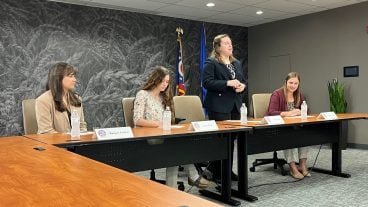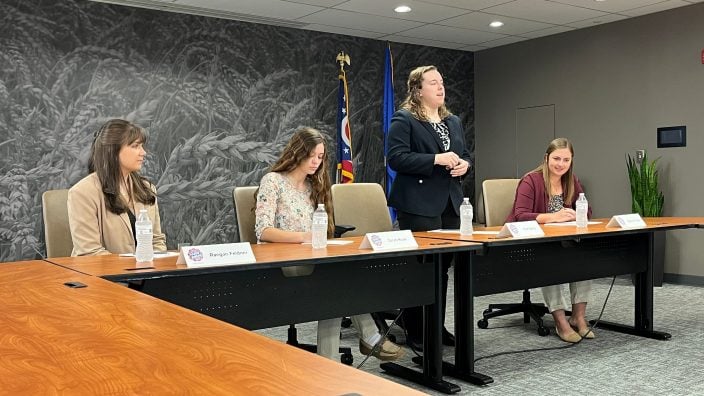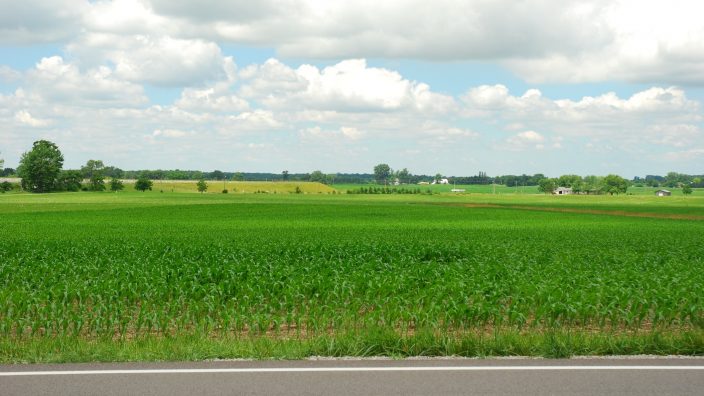Applications for Ohio Farm Bureau Health Plans now available
Members have three ways to apply: contacting a certified agent, calling 833-468-4280 or visiting ohiofarmbureauhealthplans.org.
Read MoreBoth federal and state lawmakers have recently begun to address an issue that continues to plague rural communities — the availability and reliability of broadband connectivity.
“It might sound cliché, but our lives are becoming more dependent on technology,” said Tony Seegers, director of state policy for Ohio Farm Bureau. “With new broadband access comes increased economic and educational opportunities and development. Without it, Ohioans in these unserved and underserved areas will continue to fall behind.”
The Agricultural Broadband Coalition, of which Farm Bureau is a member, applauded bipartisan leaders in the U.S. House and Senate for introducing the Precision Agriculture Connectivity Act of 2018 in late January. The legislation, which is co-sponsored in the U.S. House by Ohio Congressman Bob Latta, will help to facilitate the deployment of broadband internet across rural America. The legislation creates the Task Force for Meeting the Connectivity and Technology Needs of Precision Agriculture in the United States. Within a year, the task force is intended to bring together public and private stakeholders to evaluate current programs affecting broadband internet access on rural land, identify and measure existing gaps in coverage and develop policy recommendations to address that gap.
The Ohio House of Representatives passed Ohio House Bill 281, sponsored by State Rep. Rick Carfagna, in late January. HB 281 has the similar objective of the federal legislation of increased broadband access. That legislation requires the Ohio Department of Development Services to establish the residential broadband expansion program. The goal is to provide grant money to assist with residential broadband service expansion projects in eligible areas, which include a residential area in a municipal corporation or a township that is without access to broadband service and not already in line to receive funds for broadband.
Situations happen where residents want broadband but the broadband provider does a cost/benefit analysis of providing service and determines it would be too costly. This happens in a lot of rural areas, Seegers said. Included in the Ohio legislation is grant money that can help partially fund this broadband funding gap, he said.


Members have three ways to apply: contacting a certified agent, calling 833-468-4280 or visiting ohiofarmbureauhealthplans.org.
Read More

Collegiate Farm Bureau serves as a connection to current industry professionals and equips the next generation with the essential tools and resources needed to excel in their careers.
Read More

Ohio Farm Bureau members met one-on-one with state legislators and staff to discuss policy priorities impacting Ohio’s farms and rural communities.
Read More

Legacy nutrient deductions enable new farmland owners to claim deductions on the nutrients within the soil on which healthy crops depend.
Read More

Farmers, agribusinesses and community members are encouraged to nominate their local fire departments for Nationwide’s Nominate Your Fire Department Contest through April 30.
Read More

Introduced by Sen. Paula Hicks-Hudson, SB 120 would establish the Urban Farmer Youth Initiative Pilot Program.
Read More

Gases, vapors, and fumes can all create risk. How can we measure and protect ourselves from them?
Read More

The Ohio Farm Bureau’s Young Agricultural Professionals State Committee has named its 2026 leadership and the individuals who will be serving on the state committee for 2026-2028.
Read More

The Ohio Farm Bureau Foundation has multiple scholarships available to Ohio students from rural, suburban and urban communities who are pursuing degrees with a connection to the agricultural industry.
Read More

With 100% bonus depreciation now permanent, farmers can deduct the full cost of a new agricultural building in the year it’s placed in service.
Read More